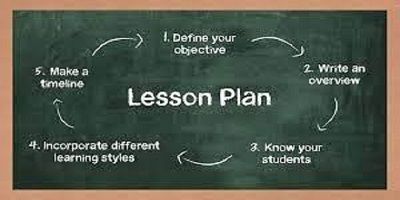Importance of Lesson Plan
The latest post is about the Importance of Lesson Plan. The importance of lesson plans in education remains significant. Lesson planning is a crucial aspect of effective teaching, and its importance is likely to persist in 2023 and beyond. Here are some key reasons why lesson plans are considered essential in education:
- Organized Teaching: Lesson plans help teachers organize their thoughts, materials, and activities in a structured manner. This organization is essential for a smooth flow of instruction and ensures. All the necessary components of the lesson are covered.
- Clear Learning Objectives: A well-designed lesson plan includes clear learning objectives. These objectives articulate what students are expected to learn during the lesson. Having well-defined goals helps both teachers and students stay focused and on track.
- Effective Time Management: Lesson plans assist in effective time management. Teachers can allocate specific time slots to different activities, ensuring. The entire lesson is covered within the allotted class time. This helps prevent rushing through content or having insufficient time for important concepts.
- Adaptability: While lesson plans provide structure, they should also allow for flexibility. Teachers can adapt and modify their plans based on the needs and responses of the students. This adaptability ensures that teaching remains student-centered and responsive to individual learning styles.
- Resource Planning: Lesson plans include a list of materials, resources, and tools needed for the lesson. This ensures that teachers are well-prepared with the necessary teaching aids. Making the learning experience more engaging and effective.
More Read…
- Assessment Alignment: Lesson plans often include formative and summative assessment strategies aligned with the learning objectives. This helps teachers gauge student understanding and adjust their teaching methods accordingly.
- Communication Tool: Lesson plans serve as a communication tool between teachers and other stakeholders. Such as administrators, parents, and substitute teachers. They provide a roadmap for what will be covered in the classroom and help maintain consistency in instruction.
- Professional Development: Planning lessons encourages teachers to think critically about their teaching methods and strategies. Reflecting on past lessons and considering what worked well. Or could be improved upon contribute to ongoing professional development.
- Legal and Accreditation Compliance: In some educational settings, lesson plans may be required for compliance with legal standards or accreditation requirements. Having organized and documented plans can be essential for meeting these obligations.
- Student Engagement: Well-planned lessons are more likely to engage students. By incorporating interactive and varied instructional methods, teachers can capture students’ interest and enhance their understanding of the subject matter.
Conclusion
In conclusion, the importance of lesson planning lies in its ability to enhance the quality of education by providing a roadmap for effective teaching. Promoting student engagement and facilitating ongoing professional development for educators.
